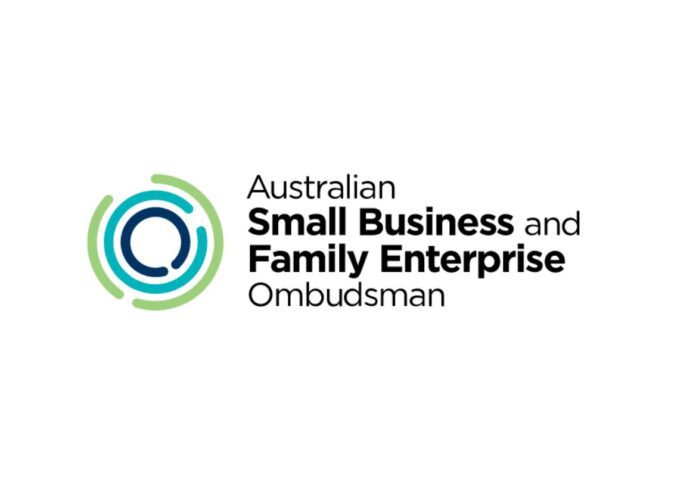
Media Release by Australian Small Business and Family Enterprise Ombudsman
The Australian Small Business and Family Enterprise Ombudsman, Bruce Billson, has urged small business owners to take time early in the new year to take stock of their mental and financial well-being.
“When you own a small business, it is just as important to spend time working on your business as it is to spend time working in your business,” Mr Billson said.
“Too often the daily quest to keep the doors open and manage the many immediate demands prevents time being spent thinking about the health, future and goals of your business. And for that matter, your own health.”
“That’s why it is vital those running or managing a small business look after their mental and financial well-being. Sometimes it can be as simple as making time to pause, reflect and reconnect.”
Research published by Treasury just before Christmas confirmed that many small business owners struggle with mental health challenges.
One-in-five of those surveyed had been diagnosed with a mental health condition by a doctor or health professional. In some industries such as manufacturing, retail trade, accommodation and food services it was one-in-three.
Small business owners said a key cause of stress was finding a balance between the demands of work, family and personal life followed by lockdowns owing to COVID?19.
Other top issues causing stress were: Worry about the ongoing profitability and survival of the business; maintaining cashflow; difficulties accessing government information and small business support; accessing or maintaining affordable finance; receiving payments on time; and developing knowledge and skills to cope with a changing business environment
One of the insights of the study was that small business owners feel acute pressure to ‘do it all’ and to keep up the appearance of being fine even when they were struggling with their mental health and wellbeing. They feel others – family, business partners, employees, and suppliers – depended on them. One of the respondents to the survey said: It all rests with me.
Mr Billson said talking to trusted advisers and networks was a great way to find solutions and an independent but dependable view can be a vital ingredient to blend with the optimism that drives enterprising people.
“For small and family business owners, their identities are interwoven into their business and the stakes are so much higher than just a job,” he said.
“Many people have invested a lifetime — and put their family home on the line — to build up their business, which amplifies the emotional challenges.
“Small businesspeople know it is often not just their livelihood but that of their team members who are invariably well-known to the owner.”
Mr Billson said many small business owners had developed good techniques for managing the stressors this involves. These include:
- Structuring their day to navigate ‘not enough hours in the day’ – pro-actively scheduling time for important stuff; time-blocks for calls, lead follow-ups, emails, social media engagement, admin tasks; timely reminders for compliance tasks; and setting clear boundaries, including all important ‘breaks’/get away time
- Self-care – implementing a personal wellbeing plan, staying healthy (sleep, exercise, diet, water); thinking time while walking/exercising; finding ways to relax, clearing the mind and unwind; locking in family time; tactics to ‘unplug’ from the business, release and connect with family and other interests; not regularly taking the work of the business home; and set times to turn off the tech
- Not trying to do everything – from the list of what needs to be done & prioritising what matters most; cutting unnecessary tasks; delegating/out-sourcing where possible; not being afraid to ask for help; writing down what is on their mind so not everything is being processed at once; and saying ‘no’ sometimes so as to not overcommit
- Focus – on what can be controlled; on positives like what is being achieved, things ticked off the ‘to do’ list/milestones reached; remembering the ‘joy’ that drove the business motivation; on implementing business systems and processes to allow for short breaks and holidays; and a hobby or enjoyable ways of being involved in your community that helps them ‘recharge’
- Support – join business groups or industry associations; build support group of peers to share and discuss daily challenges; engage with trusted advisers; ask for help for both yourself and the business; and not sacrificing key relationships for their business.
Most of the small business owners who responded to the Treasury study said they had not used any of the support services available. While owners understood the need to look after the mental health of their staff, just over half believed they would be treated poorly if they disclosed they had been diagnosed with a mental illness.
The perception of stigma was even more pronounced among small business owners who are culturally and linguistically diverse.
Some 58 per cent of all business owners said that they would not consider turning to a doctor or mental health professional for help.
Other stated barriers included the cost, lack of time, and that the services they would use did not understand what it is like to run a small business.
One positive finding was that 37 per cent of business owners felt more comfortable talking about their mental health since COVID.
Mr Billson urged small and family business owners to take advantage of the many free support services provided by small business experts.
“Being able to speak to someone who understands the mental load of running a small business makes a big difference,” he said.
The Ombudsman also said it was important that policy makers, program designers and regulators understand that a time-poor small business does not have the same bandwidth as a big business.
“A small business isn’t a shrink-wrapped version of a big one,” he said.
“They don’t have a slightly smaller HR department. There isn’t a smaller team of compliance people running around.
“No one got into business for the ‘back end’ of running the business. It’s unrelenting obligations and duties, and typically it is one person doing everything after-hours.”
Mr Billson said while many small business owners had ended 2022 feeling exhausted and were apprehensive about the economic outlook, he was inspired by their entrepreneurship and capacity to lift the nation.
“We should not forget just how vital small and family businesses are. After the global financial crisis, the bulk of new job growth was driven by small businesses. The same can be true now,” he said.
“Small business leaders are innovators, producing new ways of delighting customers and new ways of creating wealth and opportunity.
“They should have the wind in their sails, not the wind in their face.”
More information, resources and tips to help run your small business is available at www.asbfeo.gov.au
Other resources to help small business owners include:
New Access for Small Business Owners is a free mental health support service developed by Beyond Blue. It offers one-on-one telehealth sessions tailored for small business owners with specially trained mental health coaches providing evidence-based advice on strategies for managing stress. www.beyondblue.org.au/get-support/newaccess-mental-health-coaching/newaccess-for-small-business-owners
Ahead for business helps small business owners take action on their mental health and wellbeing through personalised resources and tools tailored to their specific needs, including a Mental health check-up you can use to see how you are tracking with your mental health and wellbeing. www.aheadforbusiness.org.au
MindSpot provides free, digital mental health services to adults across Australia including a free and confidential online assessment tool that can be used to learn more about the symptoms of anxiety and depression, and access clinically-proven treatment options. https://www.mindspot.org.au
The Small Business Debt Helpline operated by Financial Counselling Australia has a team of qualified financial counsellors who can answer calls directly or assist via a web chat function. The helpline provides free, independent and non-judgemental advice by calling 1800 413 828. www.sbdh.org.au
Lifeline are a national charity providing all Australians experiencing emotional distress with access to 24-hour crisis support and suicide prevention services. Call 131144.
ATO support for businesses and employers has learning resources, tools and services to support small business. https://www.ato.gov.au/General/Support-in-difficult-times



















